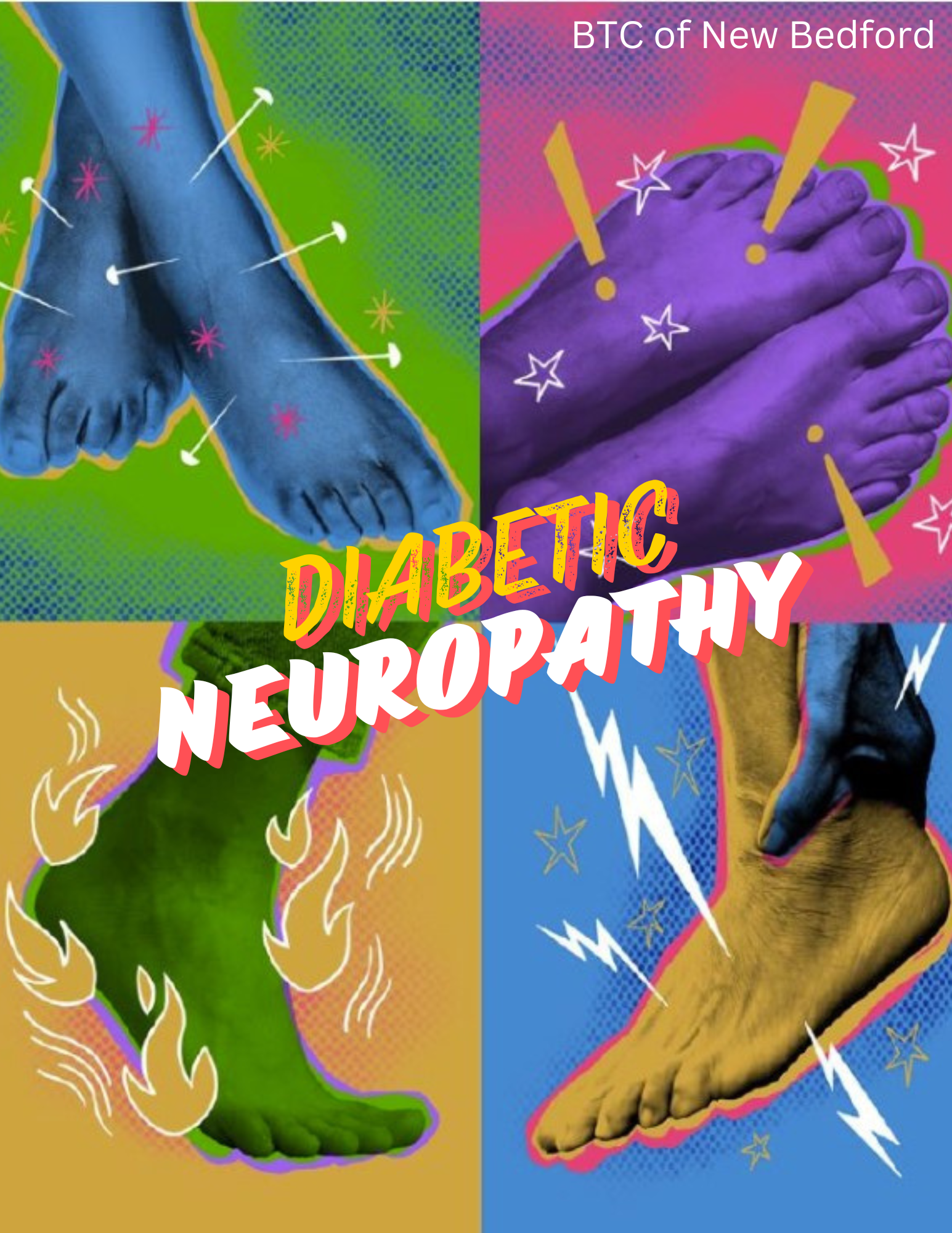The PROGRESS Study is being conducted to see if an investigational drug can reduce pain related to diabetic peripheral neuropathy. What is Diabetic Neuropathy Pain (DNP)? Well, let’s dive into what it is and what those who are experiencing this condition are dealing with.
Diabetic neuropathic pain is a debilitating condition that affects many individuals living with diabetes. It is a type of nerve damage that occurs in people with diabetes. High blood sugar levels can injure nerves throughout the body, but diabetic neuropathy most often damages nerves in the legs and feet. This condition can lead to pain, numbness, and other symptoms.
Types of DNP:
- Peripheral Neuropathy
- Affects the extremities such as the feet, legs, hands, and arms
- Autonomic Neuropathy
- Affects the autonomic nervous system, which controls the involuntary functions such as heart rate, digestion, and bladder function
- Proximal Neuropathy
- Affects the nerves in the thighs, hips, or buttocks, often on one side of the body
- Focal Neuropathy
- Affects specific nerves, often in the head, torso, or legs
Let’s explore its causes, symptoms, and management strategies to help those affected lead a more comfortable and informed life.
Causes and Risk Factors
The primary cause of diabetic neuropathy is prolonged exposure to high blood sugar levels, which can damage the delicate nerve fibers.
Contributing factors include:
- Inflammation
- Genetic factors
- Lifestyle factors (Smoking, excessive alcohol consumption and a sedentary lifestyle)
Recgonizing the Symptoms
- Tingling or burning sensations
- Often starting in the toes and feet, which can spread upward.
- Sharp or jabbing pain
- Numbness
- Making it difficult to feel pain, heat, or cold.
- Muscle weakness and loss of reflexes, particularly in the ankles.
How is Diabetic Neuropathic Pain (DPN) diagnosed?
Diagnosis typically involves a combination of medical history, physical examination, and specific tests such as nerve conduction studies to measure how quickly nerves in the extremities conduct electrical signals, electromyography (EMG), and quantitative sensory tests to evaluate how nerves respond to vibration and temperature changes.
Management and Treatment
Managing diabetic neuropathic pain involves a multifaceted approach using medications, physical therapy and lifestyle changes. Physical therapy can help strengthen muscles, improve coordination, and alleviate pain. Meanwhile, maintaining optimal blood sugar levels, exercising regularly, and eating a balanced diet can be beneficial. Keeping one’s blood glucose level within the target range is important. Be sure to schedule routine check-ups to monitor and prevent or slow the progression of neuropathy.
Living with diabetic neuropathic pain can significantly impact one’s quality of life. There are counseling services, support groups, and online communities to provide emotional support and practical advice. Unmanaged pain can take a toll on one’s mental health, leading to anxiety and depression. It is crucial to address these issues.
Research is ongoing to find more effective treatments for diabetic neuropathic pain. BTC of New Bedford is now enrolling participants dealing with DNP in the PROGRESS study. This study will last for about 16 weeks, including a 30-day follow-up after completing the study. There are 8 visits at the clinic and a telephone visit at the end of the study. If you or someone you may know has diabetic neuropathy, reach out today to see how you can qualify.

